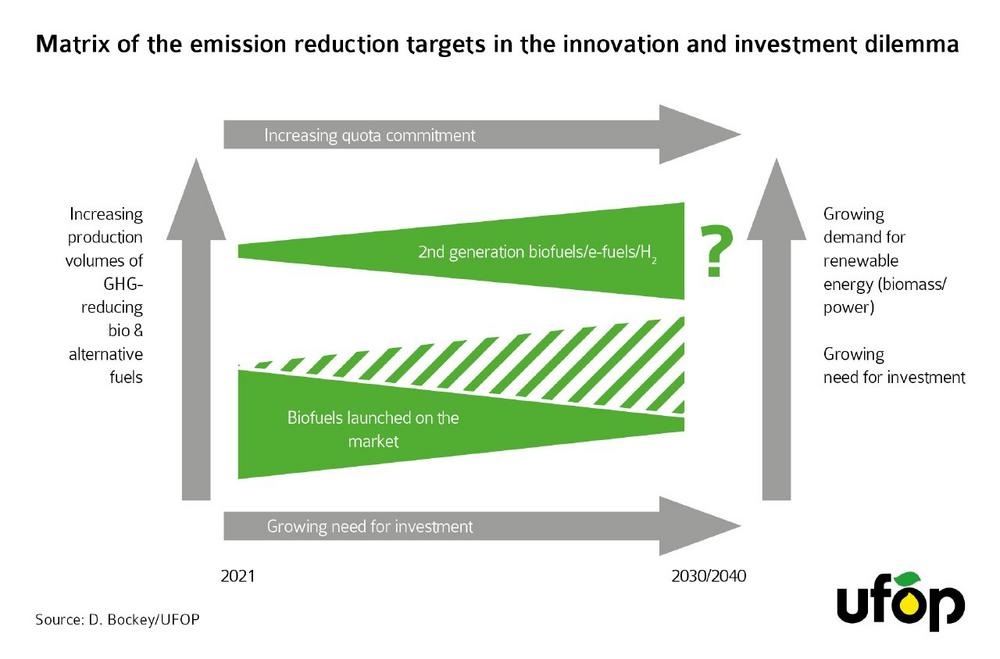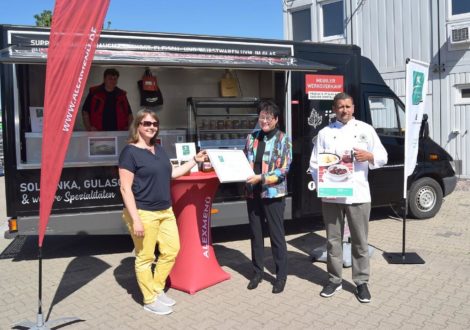
Biofuels need a holistic development approach instead of a „tank/plate“ discussion
The UFOP criticises that the Federal Ministers for Development and for the Environment, Schulze and Lemke, in their call for an exclusion of biofuels from cultivated biomass such as rapeseed, did not point out that the use of these biofuels is already capped by law. This gives the public the impression of unlimited use of arable land for this purpose. In fact, the so-called cap of 4.4 % of final energy consumption limits the volume potential in Germany. This means that the national limit is far below the limit of 7 % that is possible under European regulations, emphasises UFOP.
The current "tank or plate" discussion does not take into account the pioneering role of biofuels in sustainability certification, which must also be implemented in third countries, nor their contribution to security of supply: in Germany, a total of 4.5 million tonnes of biofuels were used in 2020 instead of fossil imports. The UFOP supports the oil embargo against Russia, but it is possible that agriculture will also be threatened by supply bottlenecks in the autumn. Those who exclude biofuel options would also have to present a proposal for compensation. The UFOP also criticises the fact that the extensification strategy is being adhered to despite the short supply on agricultural markets. The UFOP criticises that double standards are obviously being applied to the need for food supply.
The association points out that with the elimination of palm oil from liquid fuels from 2023, the raw material base in this country is shifting towards crops that are mainly used as a source of protein for animal feed and will also be used in human nutrition in the future. Rapeseed meal is not only a domestic protein source for dairy cattle feed with regard to the price-performance ratio, but will also be an important protein resource for human nutrition in the future. The current project plans are promising and trend-setting in this sense. However, this option is also interesting because the added value from the energetic use of rapeseed oil makes cultivation economical for farmers. This example shows once again that the farm-to-fork strategy must take into account the diversity of uses of the cultivated biomass and be thought through to the end in this sense, emphasises the UFOP.
This must be weighed up when politicians are currently considering the future of biofuels from cultivated biomass. In the UFOP’s view, it is not a question of more biofuels, but of strategically developing the existing and limited potential in terms of efficiency of use and value creation. Hasty decisions are detrimental to agriculture in its transformation process and to climate protection in transport if necessary technologies are not yet available or are considerably more expensive in terms of investment costs, as the figure basically shows.
The Union for the Promotion of Oil and Protein Plants e. V. (UFOP) represents the political interests of companies, associations and institutions involved in the production, processing and marketing of domestic oil and protein plants in national and international bodies. UFOP supports research to optimise agricultural production and for the development of new recycling opportunities in the food, non-food and feed sectors. UFOP public relations aim to promote the marketing of domestic oil and protein plant end products.
UFOP – Union zur Förderung von Oel- und Proteinpflanzen e.V.
Claire-Waldoff-Str. 7
10117 Berlin
Telefon: +49 (30) 2359799-40
Telefax: +49 (30) 2359799-99
http://www.ufop.de
Telefon: +49 (30) 31904-225
E-Mail: s.arens@ufop.de
![]()





